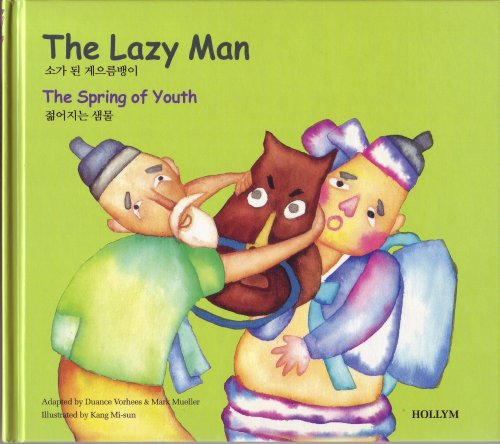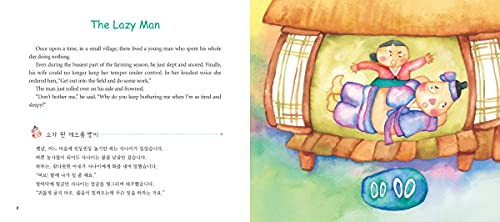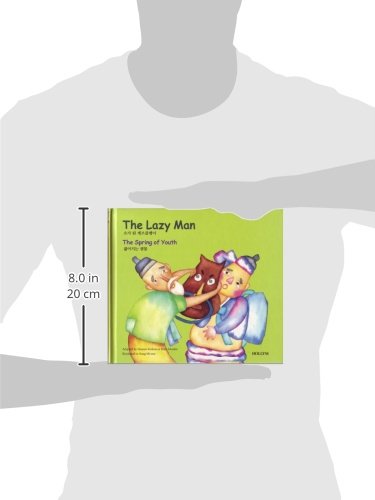Customer Services
Copyright © 2025 Desertcart Holdings Limited




The Lazy Man : The Spring of Youth (Korean Folk Tales for Children)
K**A
Puritan or Confucian work ethic?
These are two delightful folk tales about the virtue of not being lazy or selfish. The story of the Lazy Man symbolizes how Koreans value a strong work ethic. In America, we speak of the Puritan work ethic, but for Koreans, their strong work ethic is based on Confucianism. The Lazy Man is a good lesson on not being lazy. The second story honors the value of being a kind and good neighbor. Nice that this book is bilingual and the illustrations are colorful and whimsical.
P**E
Five Stars
Really good
B**.
Korean fables
Two Korean folktales are retold in both English and Korean. In "The Lazy Man" a very slothful man is tired of hearing his wife complain so he leaves home. Through the trickery of an old man and an experience as an ox, he learns to appreciate hard work and being human. In "The Spring of Youth" a childless older couple are entering into their twilight years when the husband stumbles upon a spring that makes him young again. He takes his wife to drink as well, but the greedy neighbor man also wants some and doesn't know when to stop.The folktales in this volume of this series focus on folktales/fairy tales with a moral. In the first one, the lazy man learns the value of hard work, and in the second one, jealousy and greed lead to downfall. The illustrations in both are bright, colorful and kid-friendly. There's one typo in "The Spring of Youth" in the English. If you're reading stories with morals and want a multicultural tale to add, you might want to try this book. You can do a compare/contrast activity reading "The Lazy Man" along with THE BOY OF THE THREE-YEAR NAP .
Trustpilot
1 month ago
3 weeks ago